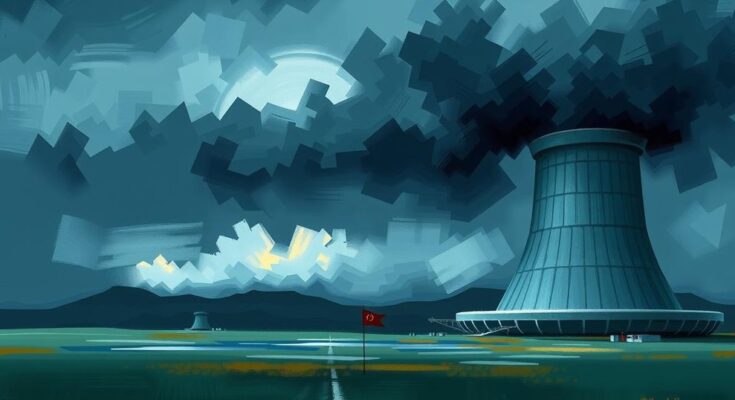Qatar’s Prime Minister has urged the U.S. and Israel to avoid military actions against Iran’s nuclear facilities, warning of the potential for widespread war and environmental disaster. He emphasized the critical need for diplomatic relations and cooperation to ensure regional stability and water security. Recent engagements between Iran and Qatar suggest a proactive approach to strengthen ties amid growing tensions in the region.
Sheikh Mohammed bin Abdulrahman Al-Thani, the Prime Minister of Qatar, has issued a cautionary message urging the United States and Israel to refrain from any military actions against Iran’s nuclear facilities. He articulated that such aggression could lead to widespread war across the region and a disastrous environmental scenario that would jeopardize millions’ lives.
In an interview with Tucker Carlson, the Prime Minister stressed that any military assault on Iran’s nuclear sites could prompt retaliation and threaten U.S. interests in the region. He highlighted the potential ecological fallout, particularly how damage to sites like the Bushehr Nuclear Power Plant could impede desalination facilities, critically impacting freshwater supplies in Persian Gulf nations.
The need for environmental security shared by multiple Gulf states, including Qatar and the UAE, was a primary concern. The Prime Minister expressed urgency by noting that, “Without clean water, Qatar would run dry in three days. This isn’t hypothetical—it’s existential.”
Recent intelligence reports have indicated that U.S. officials were alerted to possible Israeli strikes on Iranian nuclear installations, which could provoke a broader conflict. Iranian officials have reacted strongly to the potential for military action, with Foreign Minister Abbas Araghchi warning of an escalating conflict if Iran is attacked.
Brigadier General Amir Ali Hajizadeh, of the IRGC Aerospace Division, also threatened that any attack would elicit an overwhelming response, asserting, “The fire we ignite in the region will be of unquantifiable scale and scope.”
Furthermore, the Prime Minister emphasized the significance of the South Pars/North Dome natural gas condensate field, co-managed by Iran and Qatar, as vital for regional energy security. He remarked on the geographical proximity to Iran and the necessity of collaboration amidst political challenges.
Recent diplomatic engagements between Iran and Qatar have underscored their commitment to bilateral relations. Notably, the Emir of Qatar met with Iranian leadership in Tehran to bolster ties and discuss regional matters, following the first visit of an Iranian president to a Gulf Cooperation Council state in over ten years.
In conclusion, the Qatari Prime Minister’s warnings concerning military action against Iran illustrate the potential for catastrophic consequences not only in terms of warfare but also environmental devastation. The emphasis on the urgent need for cooperation and diplomatic engagement is vital for regional stability and security. The geopolitical landscape suggests a complex relationship where dialogue and mutual respect must prevail to prevent conflict and enhance collaboration.
Original Source: www.tehrantimes.com




